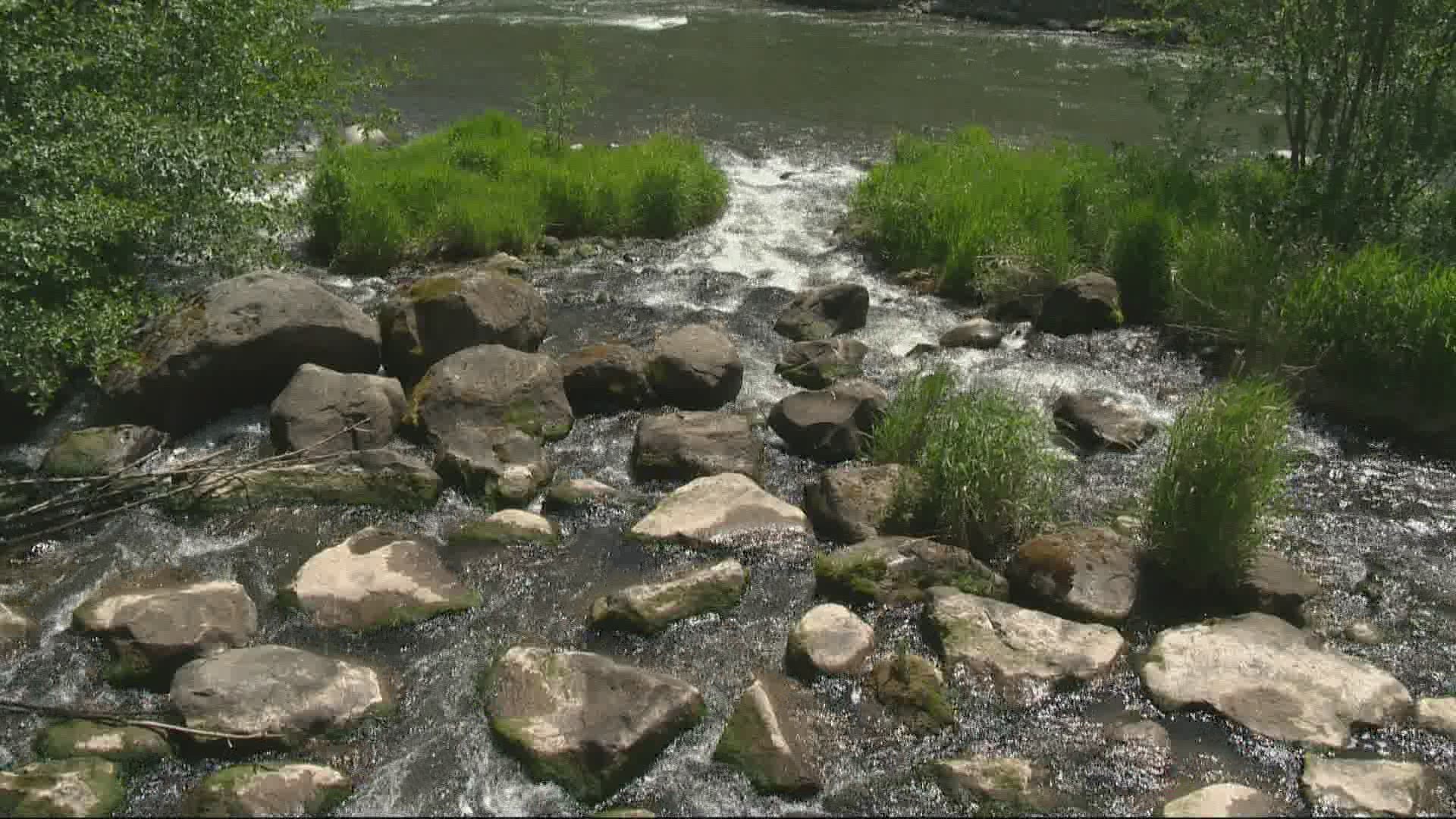HOOD RIVER, Ore. — The next time you enjoy a pear or cherry from Hood River you'll be helping conserve. The farmers there grow fruit using less water and less energy. And the water the farmers do use helps produce energy.
When it comes growing pears, fourth-generation Hood River farmer Bob Benton knows what is most important.
"Water is crucial, we couldn't do what we do without water," he said.
In Hood River, the water farmers use does a lot more than just irrigate. It also helps generate power. It's able to do so thanks to a small, yet pretty high-tech hydropower plant run by the Farmers Irrigation District.
"It uses water that is destined for irrigation systems, but this is the excess," said power plant manager Zach DeHart.
Here's how it works: Water needed for irrigation runs through power houses. As it flows through pipes, it spins turbines, which generate electricity.
"It's a high-tech water wheel," DeHart said. "Water comes in, water goes out, and in the process the energy created is used for the local community."
The district sells that power back to the local grid to help keep the community's lights, and a lot of other stuff, on.
"Our entire system can produce about 8% of the community's demands for the city of Hood River," DeHart said.
And once that excess water is moved through the turbines, it's piped right back into the river.
"We'd have to have it piped down here anyways, so why not go ahead and use it to make some electricity," DeHart said.
In the event of a natural disaster, like a major earthquake, or any emergency that cuts off power, the plant can produce enough of its own energy to keep people safe.
"We can produce enough power to power things like the hospital, grocery stores, gas stations, fire departments, emergency response," said DeHart.
And in the case of a major wildfire, the plant, once again, can come to the rescue.
"We could tap into our pipelines and use it as fire suppression," DeHart said. "Which actually we were able to do that two years ago in the Eagle Creek Fire."
The plant also helps reduce water use by allowing farmers to apply water more strategically and only where it's needed.
"They're so much more efficient that we're saving an enormous amount of water at the same time," said Benton. "It's really incredible what they do."
As farmers face drought conditions this year, conserving water is crucial, just as conserving energy is. And the Farmers Irrigation District is helping do both.
"It's 100% win-win," Benton said.

